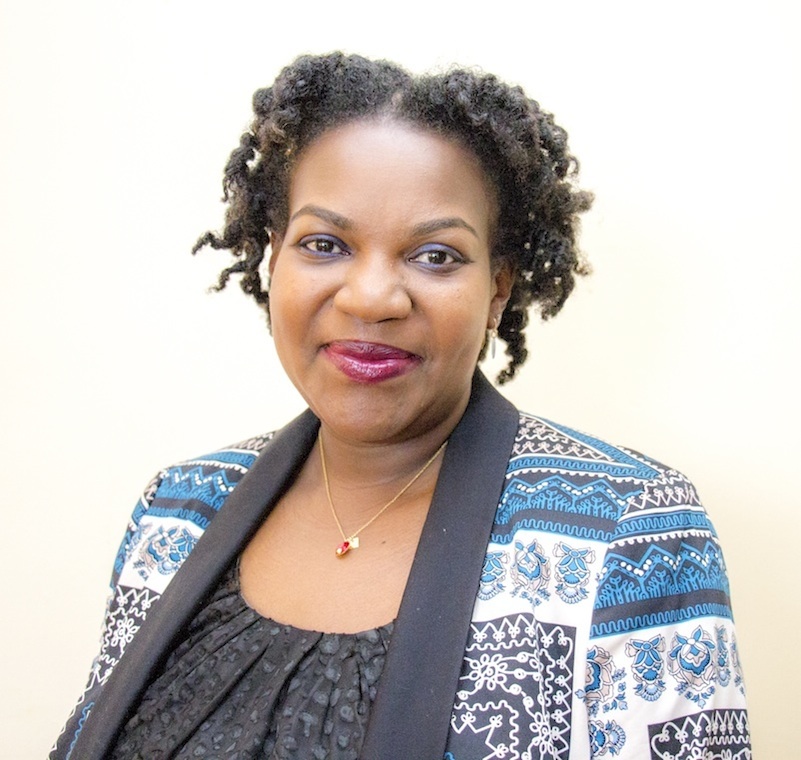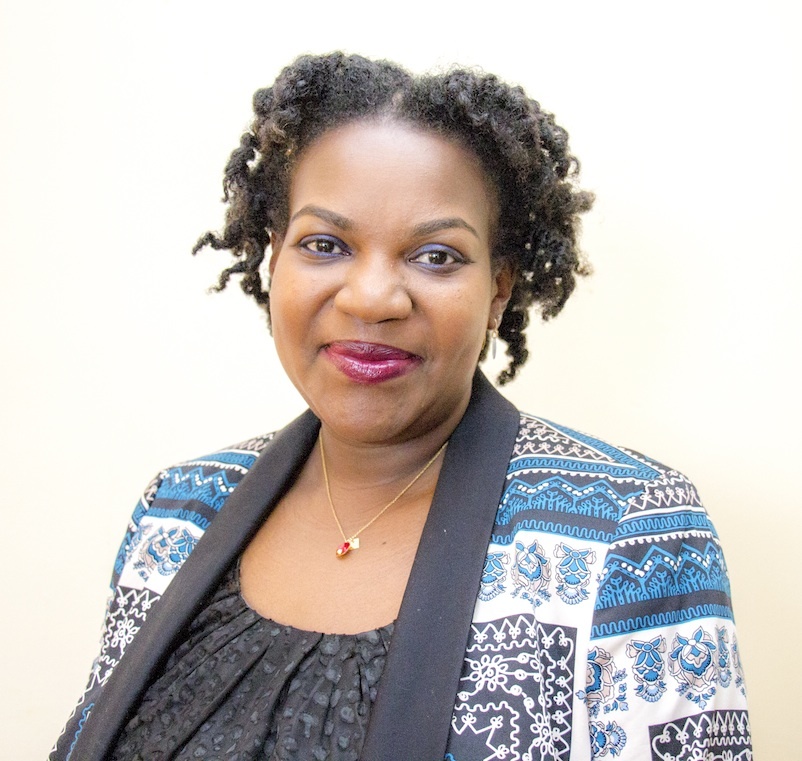
Scholar Elect Alice Musabende on how the Rwandan genocide against the Tutsis motivates her research.
I feel I have to keep going for everyone else who did not get the chance to be here, for my family and siblings, for all the people whose lives were cut so short by the genocide. I am doing this to honour them. That is my inspiration and the force behind everything I do.
Alice Musabende
Alice Musabende wants to give the people affected by war and genocide a voice in peacebuilding efforts. Too often, she says, their voices are not heard, their stories are not told and they are not able to contribute to discussions about how peacebuilding might happen.
Her PhD in Politics and International Studies, which she will begin in the autumn, will investigate how international, national and local politics interact in the context of post-conflict peacebuilding, and how these political dynamics affect local people’s everyday lives.
“I hope whatever I find out will influence international policy on peacebuilding and local policies,” she says. Alice, who lost her entire immediate family in the Rwandan genocide against the Tutsis of 1994 in which an estimated 1,000,000 people were murdered, has dedicated her life to the memory of her family and those who no longer have the chance to speak.
She feels it is vital that there are more African researchers investigating the aftermath of violence and conflict on the continent. “There is a lot of academic research done in Africa by Western researchers,” she says. “There is something to be said about owning up to our own experiences. I want to be part of a movement of African researchers who bring African voices to the table.”
Strong women
Alice was born and raised in Rwanda. A journalist by profession, she has written powerfully about the killing of her family as the genocide against the Tutsis took hold and how she escaped, of the profound impact the genocide had on her and those around her and the longing for justice. She says writing about it is difficult as it triggers terrible flashbacks, but that it also helps because it allows her to move forward.
As a teenager trying to come to terms with the enormity of what had happened, she suffered post traumatic stress disorder, anger issues, flashbacks and insomnia. She credits two women with helping her focus on the future: her aunt and a teacher at the Catholic boarding school her aunt sent her to who was the first person to realise she was suffering from PTSD and helped her through it. Her aunt, whose husband was also murdered, looked after around 10 children from the wider family, all of whom were suffering mental health problems as a result of the genocide. “The only reason I made it this far is because my aunt did not let me fall,” says Alice. Her aunt, who now works with disadvantaged children and youth in Kigali, the Rwandan capital, is her main inspiration. “She always behaved as if there was no choice but to move forwards. I was very lucky to have women like her around me who loved me and made me strong enough to continue,” she says.
In 1999, Alice was admitted to the National University of Rwanda’s journalism school, the first in the country. She was determined to be a journalist and tell people’s stories. In her third year she did an internship with a local USAID-funded project working to rebuild Rwandan coffee farming. “It had the most amazing results in any sector and brought people from different ethnic groups together,” says Alice.
She worked there for four years, initially as an outreach coordinator, writing stories about the farmers and the fair trade process, talking to the press and training people in public speaking. When she left she had put together the first outline of a radio programme for coffee farmers to spread information about what was happening in different parts of the country. “The programme took off when I left and it is still going and I am really proud of that. The country really needed people to come together and it’s a huge tribute to the resilience of Rwandan people that they have been able to look each other in the eye and work together after what has happened,” she says. “You can see it so vividly in the coffee business. Most of the farmers’ families had been decimated. They were on their own and the only wealth they had was their coffee trees. You cannot farm all by yourself. You need to work with other coffee farmers. Some had lost all their families; others were related to the perpetrators of genocide,” says Alice.
Radio plays a big part in Rwandan life. Alice remembers growing up listening to it with her grandfather. She recalls how it was used to stir hatred against Tutsis in the lead-up to the genocide, how she listened as Tutsis were called ‘cockroaches’, how presenters said they had to be hunted down. “Radio is a big part of everyday life in Rwanda,” says Alice. “ the radio plays a big part in relations between people.”
The experience of working with coffee farmers cemented her belief in the importance of enabling people to talk about their experiences and share their stories in their own words.
International peace building
Ten years ago she moved to Canada to do a masters in journalism at Carleton University after having met a Carleton professor while she was at the University of Rwanda. She received funding from the university, the Canadian International Development Research Centre and others. “It was too good an opportunity to pass up,” she says. It was also a chance to have time and space to begin to heal. While doing her course she met her now husband so she stayed on in Canada after her course, found work as a political reporter, became a permanent resident and is now a citizen of Canada.
She wanted, however, to dig deeper than journalism allows and bridge her previous international development work and academic research. She says she has an overwhelming desire to return to Africa and felt she would do that first through PhD research. To do the PhD she had to first do a master’s in international development so she enrolled at Dalhousie University where she focused on international peace building. “I wanted to find out how good local leadership works and the influence it can have on international organisations and agencies that are involved in international peacebuilding,” she says. “I was interested in turning theoretical understanding into real practical advice for policymakers.”
She adds that, having lived and worked in the West for so many years, she understands how both the West and the countries from the Great Lakes region of Africa work and can use that knowledge in her research.
A mentor of hers suggested she apply to the University of Cambridge for her PhD due to its reputation for cutting edge research so she did, but felt she would not be accepted. “I kept thinking something would go wrong, that I didn’t deserve to be accepted. I could not dream of being at a better place,” she says. But she was accepted and will be supervised for her PhD by Dr Devon Curtis. She says she feels more motivated than ever to do her research. “They have put a lot of trust in me,” she says. “I cannot fail now.”
Alice, who has a baby and a three and a half year old, says having her children has also given her extra motivation to do her PhD and that she wouldn’t have done it if she hadn’t had them and a husband who is very supportive.
“On a personal level, I have always thought that I should go a little bit beyond what I thought I could achieve,” she adds. “Once I had a child I felt a renewed sense of obligation to push myself to see how far I could go. Being a genocide survivor, I feel a deep sense of responsibility to honour the chances and opportunities I have been given.”
She adds that her sights are firmly on the future: “I have spent the last 22 years trying to figure out how not to dissolve into little pieces. I have had a lot of support to do that and I am solid enough now that I feel it is time for me to step out of my own life and to be of service to others. I am so lucky to be alive and to have all these opportunities. I feel I have to keep going for everyone else who did not get the chance to be here, for my family and siblings, for all the people whose lives were cut so short by the genocide. I am doing this to honour them. That is my inspiration and the force behind everything I do.”

Alice Musabende
- Alumni
- Rwanda
- 2016 PhD Politics & International Stud
- Murray Edwards College (New Hall)
I was born and raised in Rwanda, and when I was 14 years old my family was killed during the Rwandan genocide against the Tutsis of 1994. Although I was too young to understand its roots, this tragedy would forever shatter my life and shape the person I would become. I graduated from Rwanda’s first School of Journalism and I hold a Master’s in Journalism from Carleton University. I have worked as a journalist in Canada’s major news organizations. I am currently completing a Master’s in International Development Studies from Dalhousie University and have previously worked as an international development worker in Rwanda. At Cambridge, I will be researching further the dynamics of peacebuilding in the context of post-conflict countries in the Great Lakes of Africa, by investigating ways through which international organizations navigate the normative crosscurrents that come with peacebuilding. Centered around the issues of democratization and democratic recognition, this research seeks to explore how international actors respond to post-conflict countries when they express a strong wish to articulate the agenda, the levers they have as well as ways in which they use them. Ultimately, I seek to contribute my perspectives as an African scholar to a better understanding of peacebuilding on the continent and in the world.
Previous Education
Carleton University
Université Nationale du Rwanda
Dalhousie University












